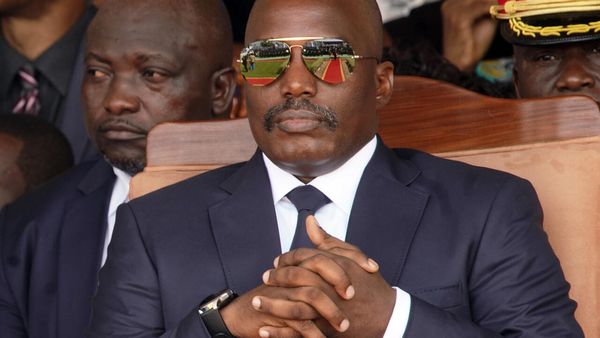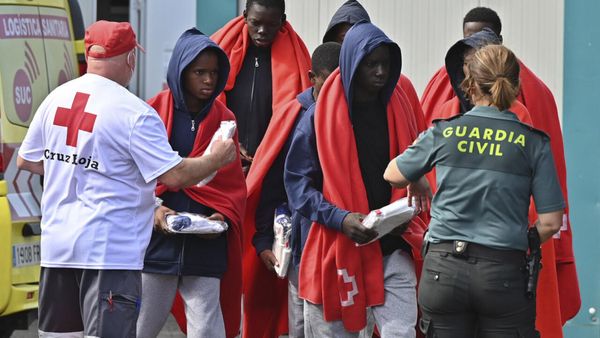If there was ever a more symbolic sport with deep connections to betting, gambling, and wagering, it would have to be horse racing. As one of the oldest sports in history, it makes sense that it has survived all of the changes in society and otherwise. From the ancient times of Greece and Rome to the tourneys of the Middle Ages and the start of what is now considered modern equestrianism, riding a horse, one of the noblest of animals, has captivated both those involved in and simply watching it unfold. It is perfectly understandable that in the modern world of dozens of sports and a plethora of games to gamble on, an ancient sport like this one still reigns supreme.
Not only is horse racing of any type popular the world over, but it is also a very rich and high-class affair. It is an exclusive club since everything around it is so expensive and upper-class. Owning, training, and caring for the horses as well as having a whole team of jockeys and instructors ready is no easy task, which is why it is such an appealing activity for those with a deeper pocket. Lucky for the rest of the masses, there are ways to get involved beyond simply being a fan and watching the races live in the stands or at home on the TV.
Betting is an immense part of it all and whenever there is a big event coming up, like the forthcoming Grand National on this Saturday, April 5, the enthusiasts are ecstatic. If you are interested in this and if watching equestrian disciplines is something you typically do, why not wager on this National Hunt horse race? It is one of the more popular events on the busy calendar and it gets a large media coverage which means there will be a lot of chances for Horse Racing odds while you enjoy the beautiful horses and skilled jockeys leading them to victory. Read on to learn more about this special occasion scheduled for this weekend.
What is the Grand National?
With such a fancy name, it has to be important, right? Well. While it is not on the same level as the popular Derby races or World Cup events, it is a very old competition with a deep and rooted tradition. The first run took place on February 26, 1839, more than 186 years ago, which means it is among the oldest and most beloved races. In British culture, it is one of those events popular amongst regular people who do not normally watch or bet on horses otherwise. What this means is that the Grand National transcends the boundaries of the sport and that it has long become something more than just another big horse racing event.
This National Hunt race, also known as Jump Racing, is held every year at the Aintree Racecourse in Aintree, England. It is a village in the Metropolitan Borough of Sefton, Merseyside, located in Lancashire and around 6 miles northeast of the center of Liverpool. This interesting location and its proximity to the big city make it even more popular. The race is 4 miles and 514 yards long, which comes to 6.907 kilometers and the surface is turf. It is a left-handed track with the purse of £1 million where the winner gets £500,000.
The sponsor of the competition is Randox and the race is of the Steeplechase. Steeplechase means that this is a distance horse race where competitors have to jump over diverse fences and ditch obstacles. However, the Grand National is unique because it features much larger fences than other Hunt tracks, some of which are famous like Becher’s Brook, where many horses were injured over the years, The Chair, and the Canal Turn. Combined with the longer distance-than-average races, the event is also known as the ultimate test of horse and rider and one of the most coveted races any duo can win.
The 2025 Favorites and Odds
The upcoming race will be the 117th annual running of the iconic Hunt race. There were 90 official entries, of which 34 will start the race. In 2024, I Am Maximus won the race, an 8-year-old French horse with an 11-06 handicap. Its jockey was Paul Wownend, the trainer was Willie Mullins, and the owner was J. P. McManus, an Irish trio. Delta Work came second and Minella Indo was third.
This time around, the defending champion is not the favorite and the current 5th best in odds with 13.00. The current favorite according to sportsbooks like Stake.com is Stumptown with 9.50 odds. It is followed by Iroko with 10.00, Intense Raffles with 12.00, and Hewick with the same odds. The same odds of 13.00 like the defending champion belong to Vanillier, while Perceval Legallois has 15.00. To round up the top ten favorites, Minella Cocooner is at 19.00 odds, Hyland is at 21.00, and Meetingogthewaters and Kandoo Kid both have 23.00 odds right now.
Most Popular Hunt Horse Racing Bets
Since the Grand National is a hunt race, the fans and bettors must know what that means. There are many different types of races and competitions in the world of horse racing and knowing how to tell them apart can mean winning money on your wager or losing it entirely. The in-bet is simple as you bet on the horse you think would win. There is also the each-way bet that consists of two parts where one bet is for the horse to win and another for it to place (finish in the top four). If the horse wins, both bets are paid out. If they place, one bet wins.
Forecast (Exacta), Tricast (Trifecta), and Accumulator (Multi-bet) include betting on multiple horses, or the first and second, first second and third, and multiple selections, respectively. All three bets are a bit more nuanced and reserved for seasoned players as the horses must finish in the correct order you pick them. Finally, the place bet is placed on a horse to finish in the top three or top four, depending on the number of runners. It pays less than the win bet as it is easier to guess.
Grand National FAQs
What is the Grand National?
The Grand National is a famous annual horse race held at the Aintree Racecourse near Liverpool, England. It is a steeplechase race over 4 miles 514 yards (6.9 km) and it includes 30 challenging fences. The race is one of the most prestigious on the calendar and is known for its thrilling unpredictability and dangerous obstacles.
When is the Grand National held?
The Grand National takes place every year in early April, typically on the first Saturday. It is the highlight of a three-day festival at Aintree which includes other races leading up to the main event. This year, it will be held between 3 and 5 April 2025.
How many horses compete in the Grand National?
The Grand National usually features 40 horses, although this number can vary slightly depending on withdrawals or other factors. In 2024 and 2025, 34 horses participated.
What are the most famous fences in the Grand National?
Some of the most iconic and challenging fences include:
Becher's Brook is known for its steep drop and difficulty. It is one of the most feared jumps where many horses were injured and had to be euthanized later.
The Chair is the highest fence on the course and one of the highest in the world.
Canal Turn is a sharp right-hand turn after a tricky fence that combines two of the more difficult elements of this race type.
Why is the Grand National so famous?
The event is renowned for its history of unpredictable outcomes. It is a spectacle of both the horses and jockeys battling the challenging fences and working together to go down in history. It has been held since 1839 and its popularity has only grown over the decades and centuries. With its extensive media coverage and the fact that many casual spectators participate in the race through betting, it can only grow bigger.
Who won the most Grand Nationals?
Red Rum holds the record for the most Grand National wins with three victories, including back-to-back in 1973 and 1974, and then a third in 1977 when it was 12 years old. Red Rum is also famous for finishing second twice, in 1975 and 1976, making him one of the most remarkable horses in racing history with 5 podiums in 5 years at this important race. It also won the 1974 Scottish National.
How are horses selected for the Grand National?
Horses are selected based on their performance in earlier races, particularly over longer distances and on challenging courses. This is a tough race so every participant needs to be able to run it and finish it. Every year, a committee evaluates the horses' form, age, weight, and experience to determine eligibility.
What is the prize money for the Grand National?
In recent years, the Grand National's prize fund has been around £1 million with the winner receiving a significant portion of this amount, usually a whole half. The prize money has grown substantially over the years, reflecting the race’s prestige and continuous growth among fans. More and more sponsors and partners are present each time.
Who are some of the famous jockeys who won the race?
Several jockeys who have won the Grand National are famous, but one of the most famous is Bob Champion who won in 1981 with the horse Alverton and was later diagnosed with cancer, making his victory all the more remarkable. Another legend is Johnny Henderson, who won with Red Rum.
Are there any famous Grand National upsets?
Yes, one of the most famous upsets was in 1967 when a horse named Foinavon won at 100/1 odds after a massive pile-up of horses and riders at the 23rd fence. Foinavon managed to avoid the chaos and cruised to an unexpected victory. In 1984, this fence, the smallest on the course, was named Foinavon fence in honor of the unlikely victor of that faithful day.
What is the weight requirement for horses?
In the Grand National, horses are required to carry a minimum weight of 10 stone or 140 pounds (63.5 kg). The weight is distributed as part of a handicap system designed to give horses of all abilities a similar chance in the race without favorites or underdogs.
Why is the Grand National often considered dangerous?
The combination of the distance, challenging fences, and the large number of horses running together makes the Grand National one of the most physically demanding and hazardous races in the world. It has a track record of accidents and pileups, also called melles. While safety measures have improved significantly, accidents and fatalities, both human and equine, have been a part of the race's history which makes it an even bigger race in the overall sport.
Do all horses finish the Grand National?
No, many horses do not finish the Grand National for several reasons. Due to the demanding nature of the course, only about half of the horses typically complete the race. Some refuse to continue, others are disqualified, and some sadly get injured. The fans never know what to expect nor do the jockeys and teams themselves.
What makes the Grand National different from other races?
The Grand National is not just a race but a whole weekend event. The combination of the difficult course with the large field of horses and a global audience makes it more than an equestrian event. Ultimately, it is the unpredictability of the outcome that sets it apart from other races. There is a high chance for any horse to win it and the underdogs as well as dark horses (no pun intended) are not that few and far apart. Its status as a major part of the British sporting culture adds to the unique allure of the Grand National even for those who are not the biggest fans of horses and racing sports.
Can people watch the Grand National outside of England?
Of course, since the Grand National is a widely televised event around the world. There are millions of people tuning in every year to watch the race. The race is also a major social event with many attending the iconic Aintree Racecourse for the live experience. Its tradition and high status make it an iconic part of British culture where stars can be found in the stands just like in other major sporting events like F1 Grand Prix races or major English Premier League matchups. Liverpool locals enjoy making their way to the nearby village where it takes place as it only comes around once a year.







